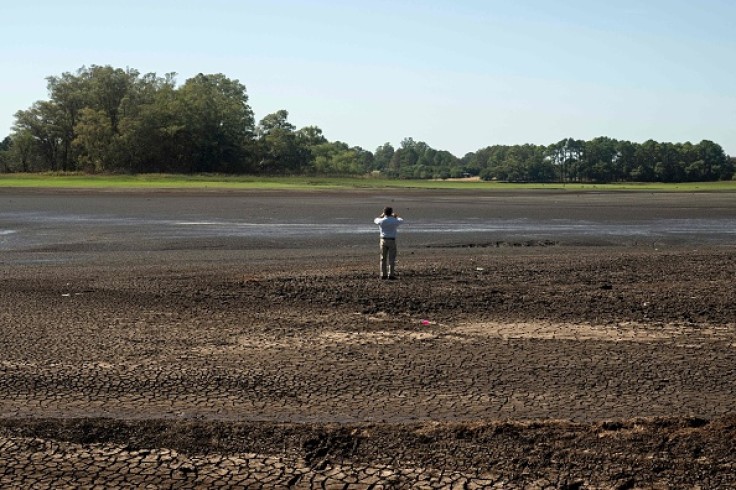
Uruguay, a relatively prosperous South American nation, is currently grappling with a severe water crisis due to a multi-year drought and soaring temperatures.
According to CNN, the situation has become so dire that residents are being compelled to consume salty tap water while workers resort to drilling wells in the heart of the capital city. In response to the crisis, President Luis Lacalle Pou has declared a "water emergency for the metropolitan area."
The implications of the water shortage in Uruguay are alarming. Canelón Grande, a crucial reservoir that typically supplies water to over a million people in the capital, Montevideo, has transformed into a muddy field that locals can now traverse on foot.
Another vital reservoir, Paso Severino, which usually caters to 60% of the country's population, has experienced the largest recorded decrease in water levels. Local media reports suggest that water levels could be completely depleted by early July.
Uruguay Declares Water Emergency, Struggles with Depleted Reservoirs
According to Yahoo, the severity of the situation has forced authorities to implement drastic measures to cope with the shortages. The public water utility, OSE, has resorted to blending salty water from the Rio de la Plata estuary with fresh water from the Paso Severino reservoir in order to stretch the supplies.
However, the resulting tap water not only tastes salty but also contains high levels of chlorides, sodium, and trihalomethanes. While there is no immediate health risk for most people, individuals with specific health conditions and pregnant women are advised to limit or avoid tap water consumption.
The scarcity of drinkable tap water has led to a significant increase in the sales of bottled water, resulting in a surge in plastic waste. However, many residents cannot afford to purchase bottled water, leaving them with no choice but to continue using tap water. To alleviate some of the financial burden, the government has introduced tax exemptions for bottled water as part of its emergency measures.
Uruguay, which was the first country to recognize access to water as a fundamental right through a constitutional amendment in 2004, is witnessing unprecedented public outrage. The current water crisis has galvanized the nation, leading to street protests in the capital.
The government has responded by announcing the construction of a dam and a new water delivery system on the San José River, which will provide an alternative water source once completed in 30 days. Tanker trucks have been deployed to deliver water to essential institutions like hospitals, and workers have even dug wells in parks to seek alternative water sources.
Experts Call for Infrastructure Upgrades, Water Conservation Measures
Critics argue that the government's response has been insufficient and point to long-standing issues with water management in Uruguay. The irrational use of water, combined with the exacerbating effects of climate change, has worsened the crisis.
Experts emphasize the need for better preparation and a shift in the country's relationship with water, urging Uruguay to prioritize water as a valuable resource and adapt to the changing climate. Recommendations include building new infrastructure such as dams, improving water delivery systems, promoting water reuse, and fostering new water conservation habits.
As the drought persists, residents of Montevideo are left hoping for rainfall in the near future. The crisis serves as a wake-up call for nations worldwide, highlighting their vulnerability to drought and the urgent need to address water-related challenges in the face of accelerating climate change.
Related Article : The Dangers of Children Drinking Pool Water, How to Prevent It